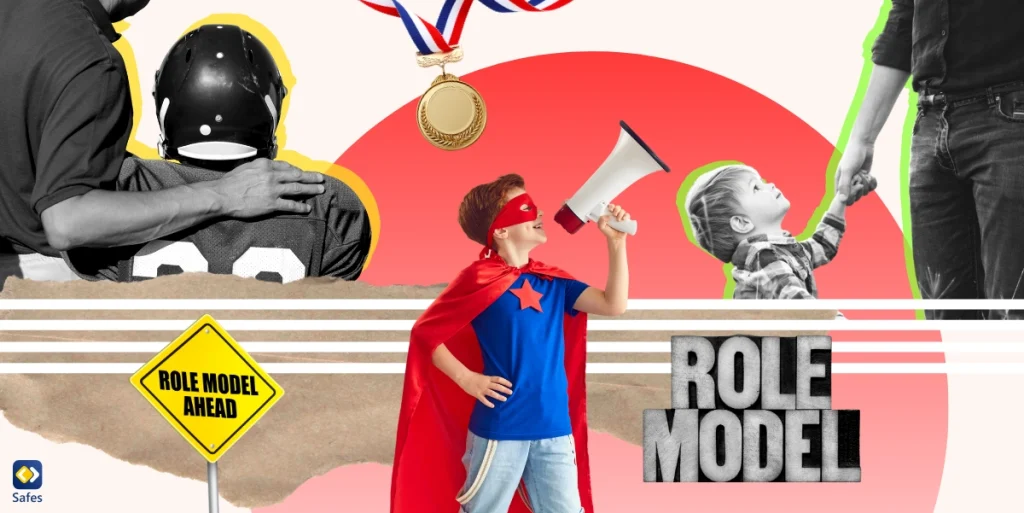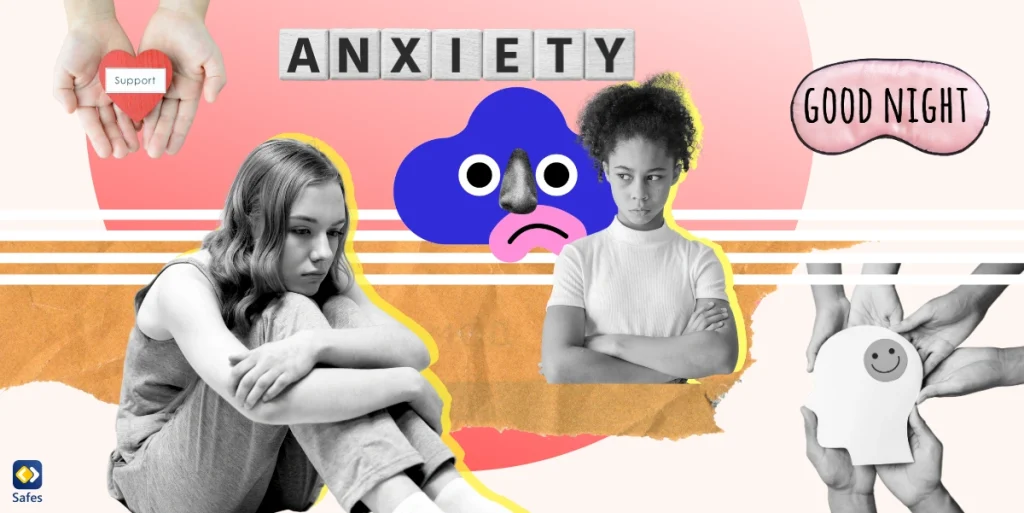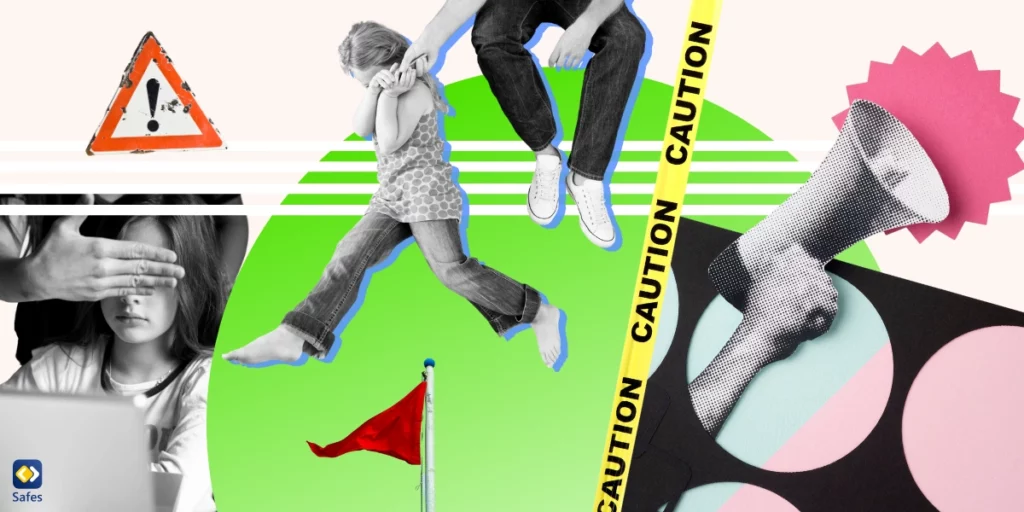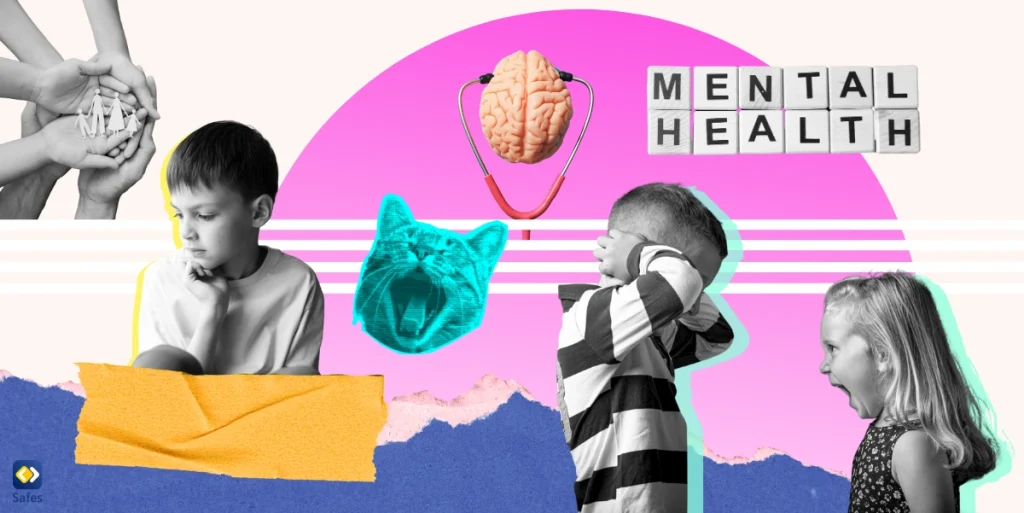Role models play a pivotal role in the lives of children and teenagers, shaping their aspirations, attitudes, and behaviors. These influential figures, who can even be teenage role models, can vary from family members and educators to celebrities and historical personalities. The best role models for young people provide a blueprint, guiding them in forming their character, values, and ambitions. Understanding the significance of role models is crucial for parents and educators, as it helps in steering the youth towards positive and inspiring life paths.
The Importance of Role Models in Childhood Development
These figures significantly influence children’s aspirations and behaviors. Young individuals often mirror the actions and attitudes of those they admire, making the presence of positive role models crucial. This emulation extends beyond mere imitation; it helps shape their understanding of social interactions, ethical norms, and personal goals. Positive role models can guide young people towards constructive pathways, instilling values and inspiring ambitions. This is why parents and educators need to understand the powerful role these influencers play in childhood development.
Educators and Family as Role Models
The influence of educators and family members as role models for young people cannot be overstated. In the realm of childhood development, these figures often act as “the” role models for students. Recent data reveals the growing significance of role models in children’s lives: a staggering 93.4% of children and young people aged 7 to 18 reported having at least one role model in 2019, up from 78.0% in 2009. Among these, parents—mums and dads—remain the most prevalent role models, making them some of the most effective role models children have in their lives.
The impact of family members, particularly in instilling a strong work ethic and good character, is profound. The principles of hard work, quality, and attention to detail are often first learned within the family environment. These values are taught, embodied, and modeled through everyday actions and interactions. The significance of this modeling is clear: children and young people need to understand and appreciate the value of work and the virtues associated with it. This understanding helps them to develop a healthy work ethic, which is a crucial component for success in life.
It’s vital to recognize that the influence of educators and family members extends beyond mere academic or career success. These role models shape the very character and moral fiber of young individuals. By demonstrating good character and a strong work ethic, they provide a guiding map for how to approach life’s challenges and opportunities.

Celebrities as Role Models
Celebrities wield considerable influence over young people, shaping their views and behaviors in significant ways, thus qualifying as great role models. For instance, Lorde, a prominent singer, positively impacted the body-image conversation by calling out a Photoshopped image of herself, advocating for the acceptance of flaws. Similarly, other celebrities like Rihanna, Beyoncé, and Jennifer Lawrence have challenged the beauty standards set by the entertainment and fashion industries.
Furthermore, many celebrities have bravely shared their struggles, thereby reducing stigma and raising awareness of critical issues. Demi Lovato, for example, opened up about her battles with addiction and mental health, inspiring young people to confront similar challenges. Ariana Grande and Bella Hadid have also been vocal about their struggles with PTSD and social anxiety, respectively, offering solace and understanding to countless young fans.
In the realm of social media, the influence of celebrities is profound. Teens often idolize celebrities, especially young teen models, and seek to emulate them. Celebrities can be positive role models they advocate for healthy behaviors and values. However, the impact can also be negative if celebrities promote harmful behaviors. Parents and educators need to guide young people in discerning the lessons and values they absorb from these public figures.
Navigating Social Media and Role Models
Social media plays a crucial role in shaping young people’s perceptions of role models. The emergence of ‘deinfluencers‘ on platforms like TikTok and Instagram represents a shift in this landscape. Deinfluencers actively discourage overconsumption by critiquing popular products and promoting critical thinking over blind following of trends. They have gained significant traction, challenging the influencer culture’s promotion of overconsumption and its environmental impact.
However, it’s essential to foster social media literacy among young minds. This involves understanding the influence and intent behind both influencers and deinfluencers. While influencers often promote products, deinfluencers encourage a more critical and selective approach to consumption. Both can significantly influence young viewers, underscoring the need for guidance in navigating these messages.
Safes: Your Ally in the Online World
The Safes parental control app offers features beyond the usual parental controls on Android to help parents manage their children’s exposure to potentially harmful celebrity role models on social media:
- Monitoring Online Activities: Allows monitoring of everything a child does on their phone or computer, including social media activities.
- Content Control: Shapes and limits the content a child sees on social platforms, filters inappropriate search results, and blocks unsuitable online games or apps.
- Scheduling Screen Time: Sets up a schedule for a child’s screen time, limits social media usage, and sets bedtime to prevent late-night browsing.
- App Usage Reports: Provides detailed reports on app usage to spot unhealthy screen time patterns, including excessive exposure to certain celebrities.
These tools help parents protect their children from negative influences on social media by monitoring and controlling their digital activities. You can download Safes on iOS and Android.
Sign up for a free trial with Safes and access resources to help guide your child towards healthy and inspiring influences.
Historical Figures as Role Models
Some consider historical figures as true role models. Figures like Martin Luther King Jr., Albert Einstein, and Leonardo da Vinci represent the epitome of human excellence in various fields and are only some of the role model examples for students. They are symbols of qualities such as courage, honor, justice, and intellect, offering limitless inspiration for what one can achieve. By learning about these important role models, young people can expand their aspirations and shape their ideals in profound ways.
However, the media often blurs the line between celebrity and excellence, leading young people to idolize movie stars or athletes instead of historical figures who made significant contributions to society. This trend underscores the importance of educators and parents in introducing young people to historical role models. By telling the stories of these individuals, educators and parents can help young people understand the impact of courage, nobility, and genius on the world.
Diverse Role Models: Beyond Fame and Fortune
In the sphere of education and community development, common role models, such as community leaders and everyday heroes, play an important role. They serve as great role models by providing relatable and accessible examples of positive values and resilience.
By showcasing a variety of role models, educators and parents can help young people see the richness of experiences and perspectives that exist beyond their immediate environment. This exposure is crucial in helping them develop a well-rounded worldview, fostering tolerance, empathy, and a deeper understanding of the diverse society in which they live.
Real-Life Role Models
Engaging kids in community service is a potent way to introduce them to real-life role models who embody commendable work ethics and societal values. Community service ideas for kids, particularly in high school, can be both simple and impactful. Activities like planting trees, participating in food drives, or organizing recycling programs at school are excellent starters. These actions foster a sense of investment in their community, an essential aspect for teenagers who are profoundly influenced by their environment.
Volunteering also helps develop empathy, a critical trait in young individuals. By interacting with diverse groups and situations, kids learn compassion, care, and understanding, crucial qualities in any great role model. Moreover, these experiences can cultivate leadership skills, as they involve taking initiative and responsibility.
For parents seeking to guide their children towards positive role models, conversation and active support are key. Encourage children to identify the qualities they admire in a role model, whether it’s someone they identify as an excellent role model or someone known for their good character. Discuss people in the community who embody these qualities and serve as positive influences.
In addition to conversations, engage children in activities that align with your values, such as volunteering or after-school programs. This involvement can help children find role models who embody the traits you wish to encourage. Remember, children can admire certain aspects of a role model without needing to emulate everything they do. It’s about finding balance and helping children identify role models who positively impact their growth and development.
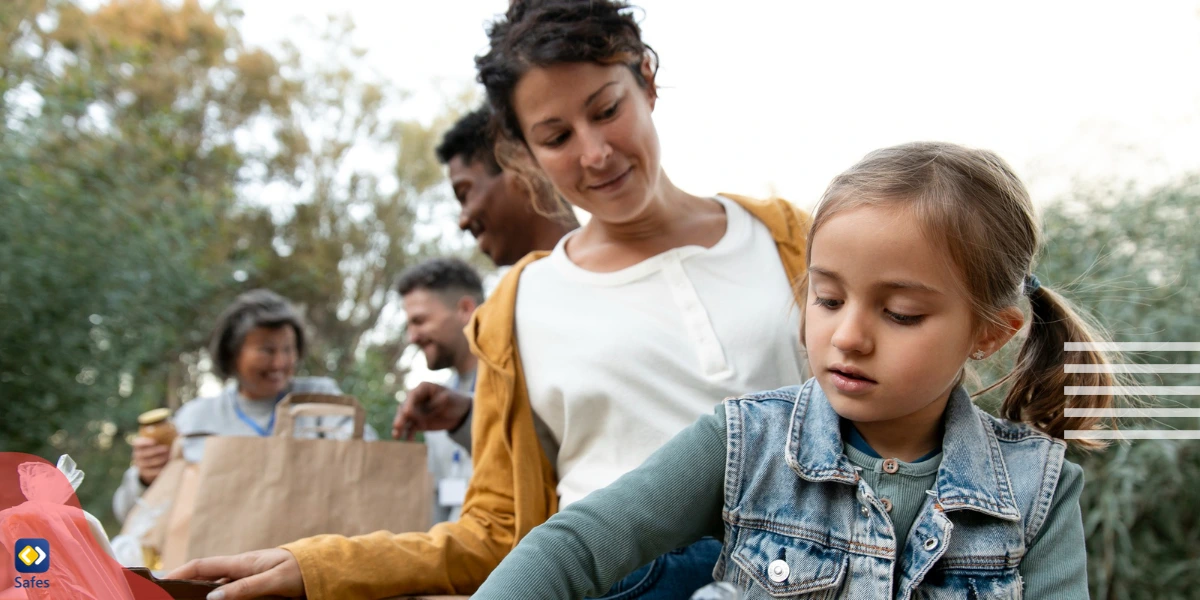
Final Thoughts
In conclusion, the selection of role models plays a crucial role in shaping our children’s future. From educators and family members to celebrities and historical figures, these influencers mold young minds, imparting values, aspirations, and behaviors. By guiding children towards diverse, positive role models and encouraging active engagement in their communities, we not only enrich their personal development but also lay the foundation for them to grow into well-rounded, empathetic, and responsible adults.
